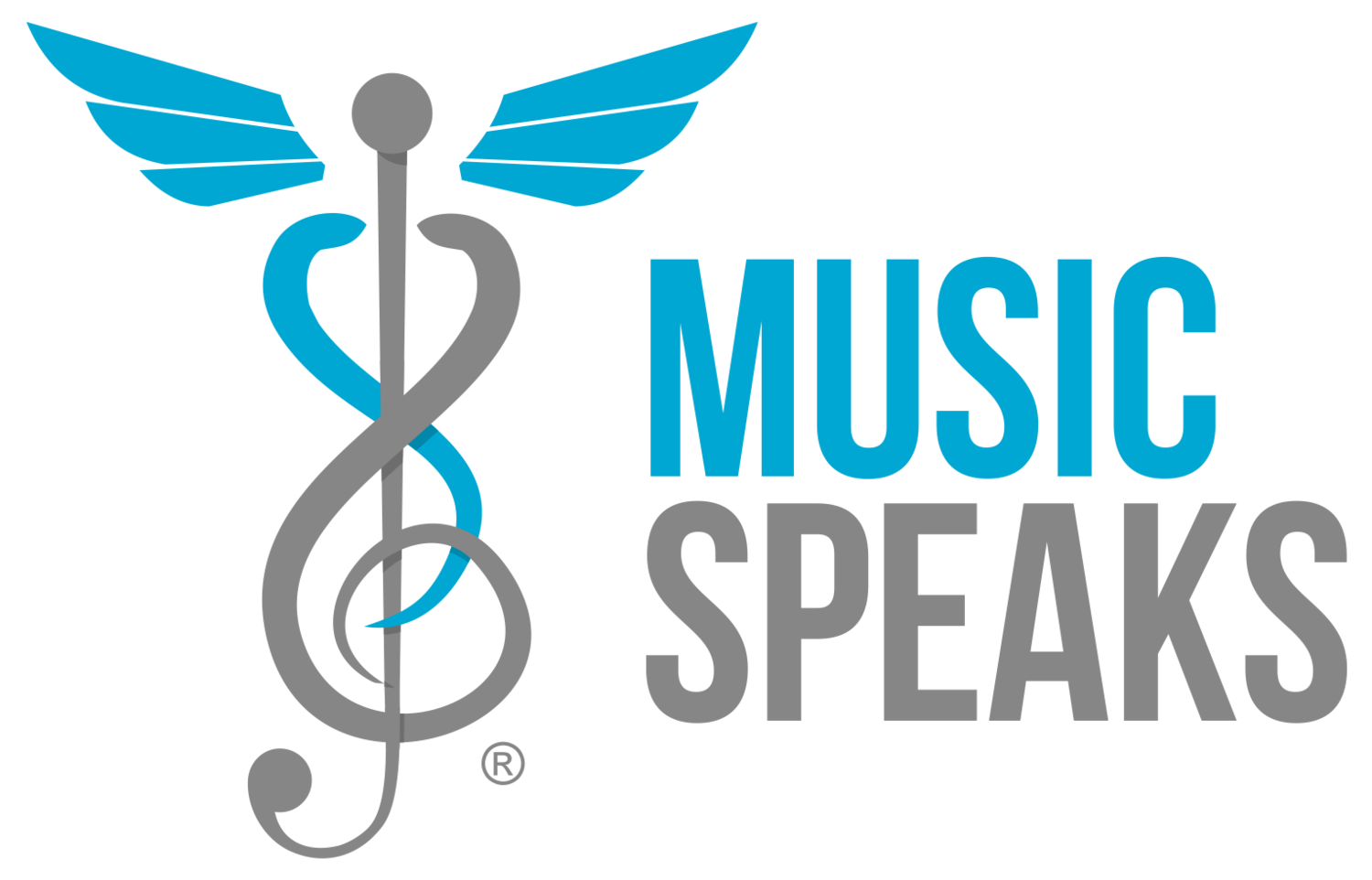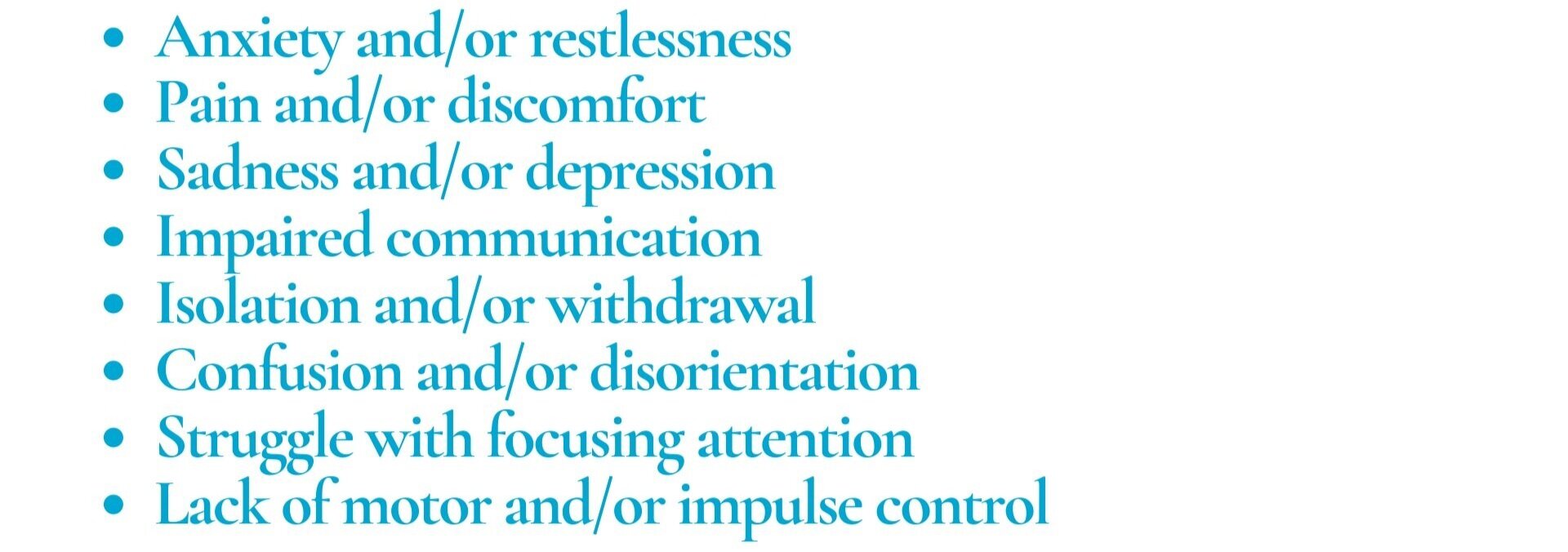Questions & answers about music therapy
Many people have questions about music therapy and how this professional therapy can benefit their loved ones. The following are answers to the questions we hear most often. If you have any additional questions, or if you would like to further discuss one of the responses listed below, we hope you will contact us directly!
What is music therapy?
Music therapy is the clinical and evidence-based use of music interventions to accomplish individualized goals within a therapeutic relationship by a credentialed professional who has completed an approved music therapy program (American Music Therapy Association, 2019).
Who can benefit from music therapy?
Many people! Music therapy can benefit individuals who are experiencing the following and more:
To learn more about how music therapy can benefit different populations, please take a moment to explore our page on Services.
Do clients need to be musical in order to benefit?
No. Music is a tool in music therapy, not the purpose or reason for treatment. The goals for treatment in music therapy are non-musical; examples of goals might include increasing alertness or decreasing confusion in the client. While therapeutic interventions may include participatory instrument playing or singing, clients can be successful with these interventions regardless of their musical background.
Is music therapy appropriate for everyone?
Not always. While many clients do receive the benefits of music therapy, some people do not respond to music therapy interventions. Because of this, Music Speaks works with caregivers and staff members at a facility to identify and refer individuals who have the most need. This is also why our therapists always do assessments with potential clients before beginning sessions: if a potential client does not respond to interventions, we do not start therapy services as it will not be beneficial to the client.
For the clients who do begin services, our therapists will continue to assess them during sessions. Just as a patient in physical therapy may reach his or her intended goals and no longer have need for visits with a physical therapist, clients in music therapy sessions may also come to a point where continued sessions from a music therapist is no longer necessary. In these situations, our music therapists may discharge the client from services.
What are examples of goals in music therapy?
This is a short list of examples - listing all the goals possible for clients in music therapy could take up this entire page! Goals are individualized for each client based on need. Our trained music therapists complete documentation after every session to show how your loved one is progressing towards his or her goals.
My loved one has a hearing impairment. Will he/she still benefit from music therapy?
Yes. Music can still be felt through touch or vibrotactile stimulation, whether through the vibrating beat of the drum, the feel of shaking a tambourine, the plucking of a guitar string, and more. Music can also be seen and offer visual stimulation. Because music therapists use different elements of music for therapeutic interventions - such as beat/meter and rhythm - one does not need to hear the melody in order to benefit from music therapy.
Could I use recorded music and have the same impact?
Tyanne Mischnick, MME, MT-BC, drums with a client during a session.
While recorded music does have its own merits and can be effectively used by a trained music therapist, recorded music alone is not a substitute for a music therapy session with a board-certified music therapist. Our music therapists are trained to continuously assess a client and adjust the music and interventions as needed in real-time. As noted in the question above, live music also offers the touch or vibrotactile stimulation of the instruments being used, as well as personalized interactions and visual stimulation that recorded music simply cannot provide.
How does Music Speaks ensure quality music therapy for their clients?
At Music Speaks, we pride ourselves on offering quality music therapy services to all of our clients, regardless of situation, diagnosis, prognosis, or location. Some of the ways we ensure this is by:
Only hiring board-certified music therapists to lead sessions
Maintaining clinical managers on staff to coach, supervise, and evaluate field music therapists
Requiring our therapists complete assessments to determine if a potential client is appropriate for music therapy, and if this therapy will be beneficial to them
Requiring our therapists complete documentation to show each client’s progress to their goals
Keeping a limit on how many clients can be in a therapeutic group to ensure that each group member will get individual care
Requiring weekly sessions to ensure continuing progress towards the client’s goals
Frequent communication with client, staff, caregivers, and guardians on any progress or concerns related to their clinical goals
Have a different question about Music Speaks or music therapy?
Please let us know! You can contact us by filling out the form below.




